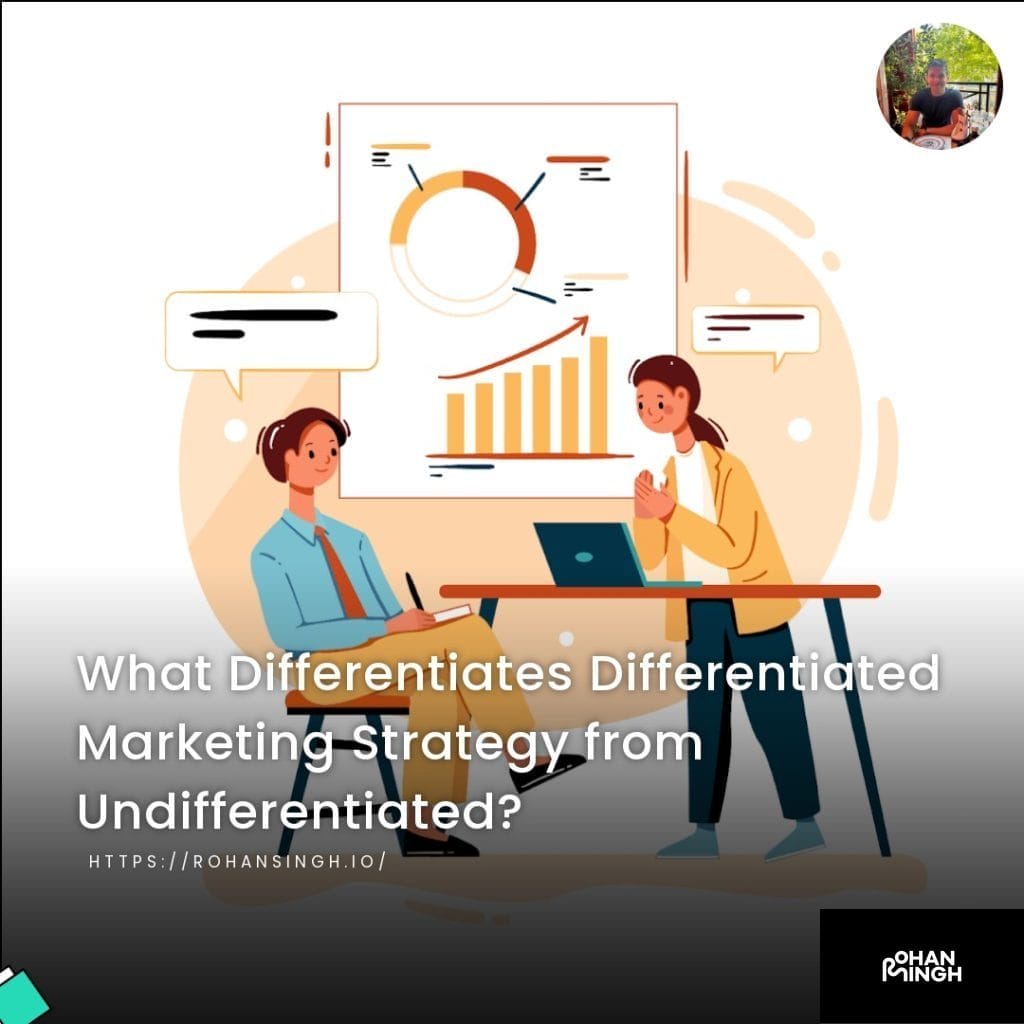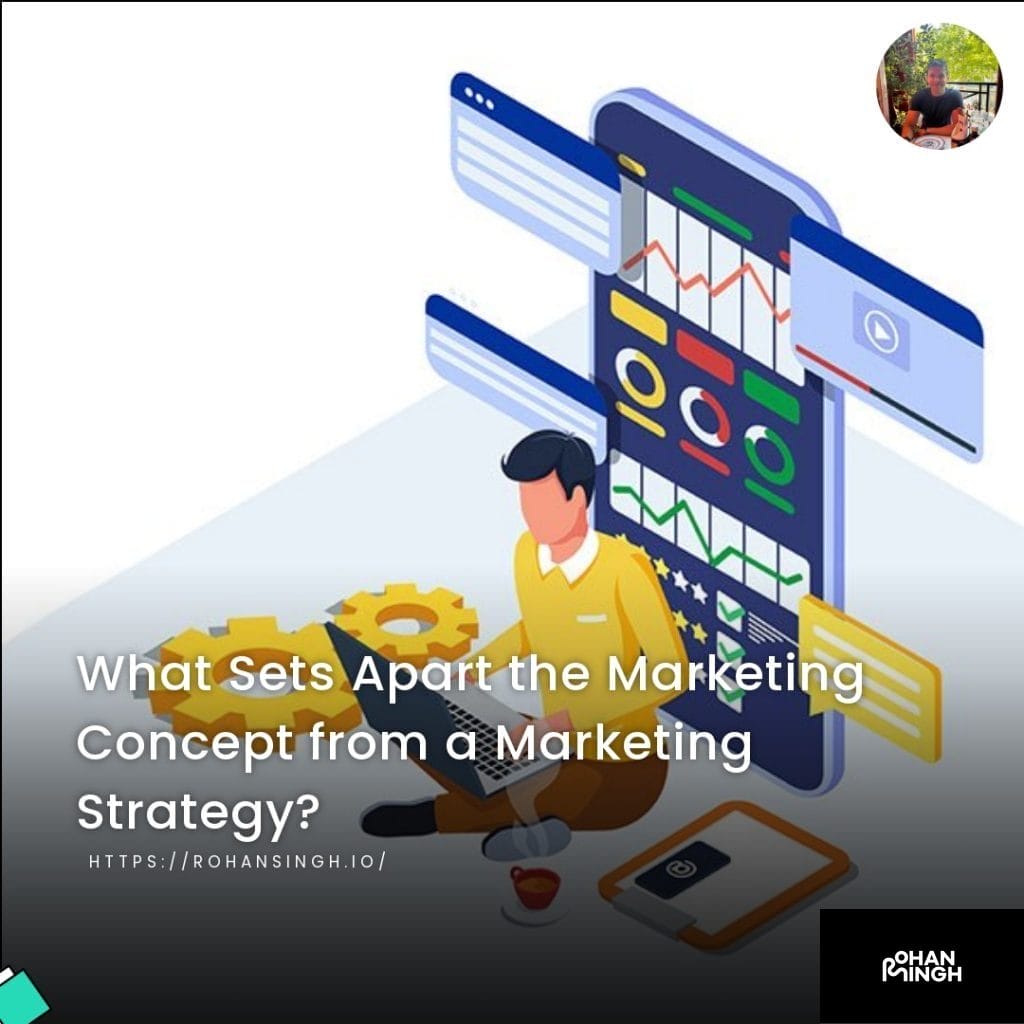How do HP and Dell differ in their marketing strategies?
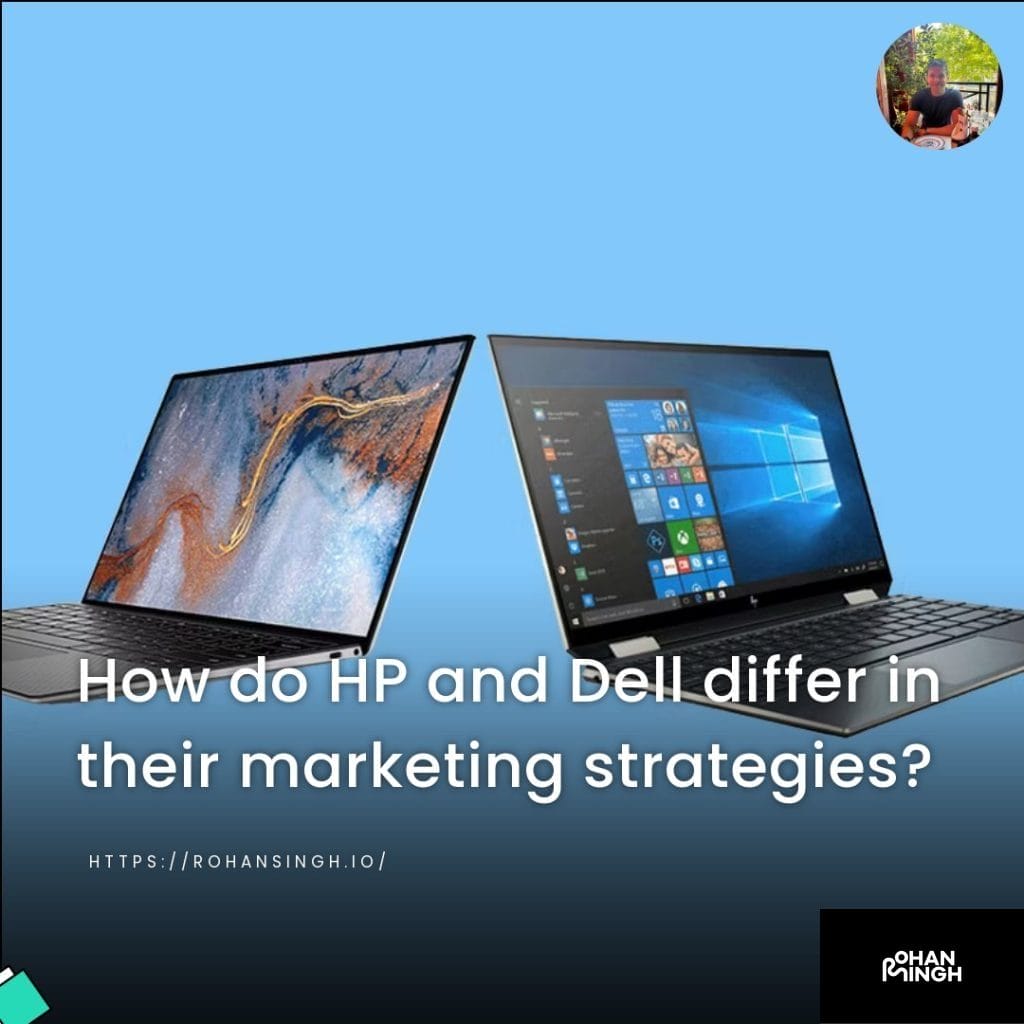
Overview of the Technology Industry
The technology industry is a rapidly evolving and highly competitive sector that encompasses a wide range of products and services. It plays a crucial role in shaping the way we live, work, and interact in the 21st century. Companies like HP and Dell are at the forefront of this industry, constantly striving to innovate and meet the ever-changing needs and demands of customers.
Table of Contents
ToggleIn this dynamic landscape, marketing strategies play a pivotal role in determining the success of a company. HP and Dell, both technology leaders, have developed unique and innovative marketing approaches to distinguish themselves from the competition. These strategies revolve around understanding their target customers, delivering excellent customer service, and offering a wide range of reliable and cutting-edge products.
By understanding their target customers, HP and Dell can tailor their marketing messages and product offerings to meet their specific needs and preferences. This allows them to create personalized customer experiences and build long-lasting relationships with their customers. Additionally, both companies place a strong emphasis on providing excellent customer service throughout the purchasing process and beyond, ensuring that their customers feel valued and supported.
In the technology industry, where competition is fierce and customer demands are constantly evolving, HP and Dell have managed to stay ahead by consistently innovating and offering a wide range of customizable and reliable products. This enables them to cater to the diverse needs of both business users and creative professionals. Moreover, they have embraced digital marketing strategies to reach potential customers effectively, leveraging online forums and social media platforms to engage with their target audience and build brand loyalty.
HP and Dell’s marketing strategies have proven to be successful, allowing them to maintain a strong presence in the technology industry and continuously adapt to changing customer demands. Through their focus on customer-centricity, innovative products, and digital engagement, these companies have carved a niche for themselves in the highly competitive market, providing a blueprint for other companies looking to succeed in the technology industry.
HP and Dell: History and Business Models
HP and Dell are two prominent players in the technology industry, each with their own unique history and business model that has propelled them to success.
HP, short for Hewlett-Packard, was founded in 1939 by Bill Hewlett and Dave Packard in a small garage in Palo Alto, California. Originally focused on producing electronic test equipment, HP quickly expanded into the personal computer market in the 1980s. Over the years, HP has diversified its product offerings to include a wide range of technology-related products such as printers, storage devices, and software solutions. One key element of HP’s business model is its focus on innovation. With a strong commitment to research and development, HP constantly pushes the boundaries of technology to deliver cutting-edge and reliable products to its customers.
On the other hand, Dell, founded by Michael Dell in 1984, started as a direct sales model aimed at providing customized personal computers to customers. This direct model approach allowed Dell to quickly gain a competitive advantage by cutting costs and offering a wide range of options for customers. As the company grew, Dell expanded its product lines to include not only desktop and laptop computers but also servers, storage, networking, and other technology solutions for both business and personal use. Dell’s key differentiator is its focus on customizable products, allowing customers to tailor their computers and solutions to their specific needs.
Both HP and Dell have evolved and adapted their business models to stay competitive in the ever-changing technology industry. HP’s emphasis on innovation and diverse product offerings, combined with Dell’s expertise in customizable solutions, has enabled both companies to thrive and cater to the needs of a wide range of customers.
Let's talk about your future project!
Eager to collaborate on your upcoming endeavor? Let's explore and ignite the potential of your next big idea, shaping a promising future together!
HP's Marketing Strategy
HP’s marketing strategy is centered around innovation and a commitment to delivering cutting-edge products to its customers. With a rich history dating back to its founding in 1939, HP has always been at the forefront of technology advancements. The company invests heavily in research and development to create products that not only meet customer needs but also exceed their expectations. HP understands the importance of staying ahead of the curve in the fast-paced technology industry and consistently introduces new and innovative products to capture the attention of its target customers. By continuously pushing the boundaries, HP maintains a competitive edge and remains a technology leader.
In addition to innovation, HP’s marketing strategy also focuses on building strong relationships with its customers. The company understands that excellent customer service is crucial in today’s competitive landscape and goes above and beyond to provide exceptional customer support. HP offers a wide range of options for customers to choose from, ensuring that there is something for everyone. From business users to creative professionals, HP caters to the diverse needs of its customer base. Through various marketing campaigns and initiatives, HP communicates the value and benefits of its products, capturing the attention and interest of potential customers. By understanding customer demand and segmentation, HP can tailor its marketing efforts to effectively reach and engage its target audience.
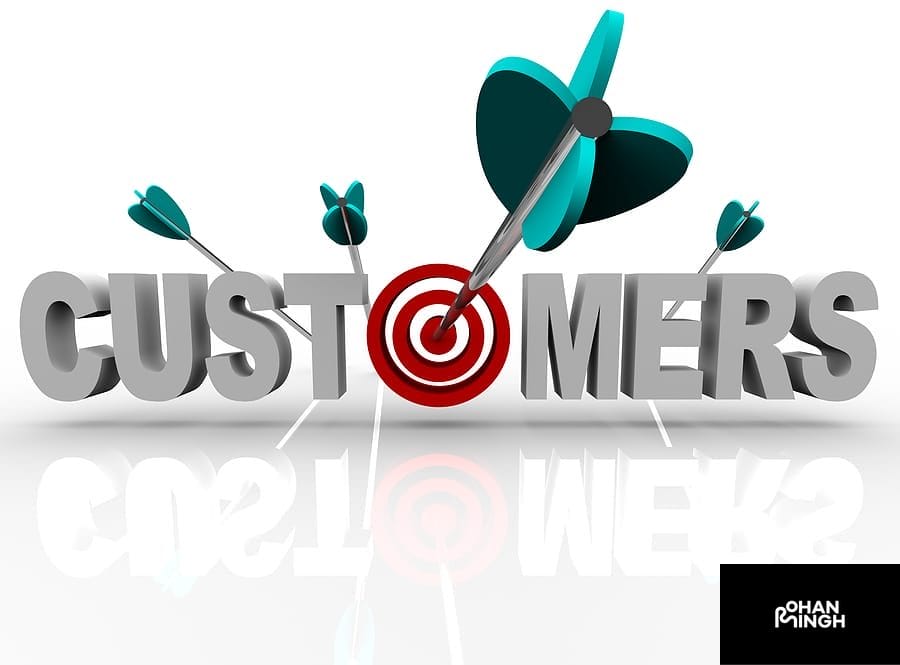
Target Customers
Dell, as a leading technology company, has identified its target customers as those who value customization and personalized solutions. By allowing customers to customize their computer systems, Dell has a unique selling point that sets them apart from retailers offering prebuilt systems. This customization aspect gives Dell a competitive edge in the market.
Dell understands that each customer has unique needs and preferences when it comes to technology. With its wide range of options, Dell can cater to a diverse customer base and provide them with tailored solutions. Whether it’s business users looking for high-performance desktop computers or creative professionals in need of powerful laptop brands, Dell has products that meet their specific requirements.
Furthermore, Dell’s direct-to-consumer model allows them to have a closer relationship with their customers. By cutting out the middleman, Dell can have a better understanding of customer demand and provide excellent customer service. This direct model approach also eliminates the need for physical retail stores, reducing costs and allowing Dell to offer competitive prices.
In summary, Dell’s marketing strategy revolves around targeting customers who appreciate customization and personalized solutions. Their unique selling point of allowing customers to tailor their computer systems to their needs sets Dell apart from competitors. The direct-to-consumer model further enhances their ability to serve customers by offering them a wide range of options and excellent customer support services.
Digital Marketing Plan
When it comes to digital marketing, both HP and Dell have implemented strategies to reach their target customers effectively. HP focuses on utilizing various online platforms to create brand awareness and engage with potential customers. Their digital marketing plan includes a strong presence on social media platforms like Facebook, Twitter, and Instagram, where they share product updates, customer testimonials, and behind-the-scenes content. HP also leverages email marketing campaigns to stay connected with its audience and provide personalized offers and promotions. Additionally, they invest in search engine optimization to ensure that their website ranks high in search engine results and drives organic traffic.
On the other hand, Dell’s digital marketing plan revolves around its direct sales model. They employ targeted online advertisements and sponsored content to reach their desired audience. Dell also utilizes social media platforms to showcase their latest products and interact with customers. Their focus on email marketing is aimed at nurturing relationships with their existing customers, providing them with relevant updates, and exclusive offers. Dell also recognizes the importance of search engine optimization and invests in optimizing their website to increase visibility and drive more traffic.
Both companies have recognized the power of content marketing in their digital marketing strategies. HP creates informative blog posts, videos, and guides related to technology and its products, positioning itself as an industry leader and educating its customers. Dell also produces valuable content that highlights its expertise in technology, providing helpful information and resources to its audience. Additionally, both companies utilize customer segmentation strategies, targeting specific demographics and tailoring their marketing efforts to meet the unique needs and preferences of different customer segments.
Value Proposition for Enterprise Customers
Dell and HP have both established strong value propositions for enterprise customers, offering a range of innovative technologies and business solutions.
Dell’s value proposition lies in its direct sales model, which allows them to provide customized products tailored to the specific needs of enterprise customers. By cutting out the middleman, Dell can offer flexibility and speed in delivering solutions, ensuring that businesses have the technology they need to stay competitive in the fast-paced 21st-century market. Additionally, Dell’s commitment to technology innovation ensures that its offerings are always cutting-edge, providing enterprise customers with the latest advancements in hardware and software.
HP, on the other hand, positions itself as a technology leader, focusing on delivering reliable and innovative products to meet the needs of enterprise customers. With a wide range of options, HP offers customizable products that can be tailored to fit the unique requirements of each organization. Their business model emphasizes customer-centricity, striving to provide excellent customer service and support to ensure a seamless experience for enterprise customers.
Both Dell and HP recognize the importance of offering value to enterprise customers through their respective business models and technology innovation. By understanding the specific needs of these customers and providing customizable solutions, they ensure that businesses can stay ahead of the competition in the ever-evolving technology industry.

Cost Advantage Strategy
Dell has successfully maintained its cost advantage strategy over its competitors through its direct model approach. By cutting out the middleman and selling directly to customers, Dell can eliminate the additional costs associated with third-party retailers. This allows them to price their products lower than those of their competitors, giving Dell a competitive edge in the market.
In addition to the direct model, Dell’s high level of customization is another key factor in its cost-advantage strategy. By offering a wide range of customizable products, Dell can cater to the specific needs of each customer, avoiding unnecessary features and costs. This level of customization also allows Dell to streamline their supply chain management, reducing inventory and minimizing costs associated with excess stock.
The direct model and customization together contribute to Dell’s economies of scale. As more customers choose Dell for their technology needs, the company can leverage its size and increase production efficiency. This results in lower manufacturing costs per unit and allows Dell to further reduce prices while maintaining profitability.
Furthermore, Dell’s dedication to quality is reflected in its low rate of dead-on-arrival machines and component failures within a system’s lifetime. This high level of reliability not only ensures a positive customer experience but also reduces warranty and support costs, further enhancing Dell’s cost advantage.
By maintaining a strong focus on cost efficiency and customer satisfaction, Dell has been able to establish and maintain a cost advantage strategy that sets them apart from their competitors.
Excellent Customer Service Scores
When it comes to customer service, both Dell and HP have consistently received high scores. Their commitment to providing excellent support options ensures that customers can easily reach out for assistance whenever needed.
Dell offers a range of support options including phone, email, and chat support. Their knowledgeable customer service representatives are trained to address any issues promptly and efficiently. In addition, Dell provides an extensive online knowledge base and community forum where customers can find answers to frequently asked questions and interact with other Dell users.
HP also offers comprehensive support options, with phone, email, and chat support available to customers. Their customer service team is dedicated to resolving issues quickly and effectively. Like Dell, HP provides an online knowledge base and community forum where customers can find valuable information and engage with other users.
Both Dell and HP offer warranty plans to provide additional peace of mind to customers. However, there are some differences in coverage and cost. Dell’s warranty plans typically cover hardware issues and provide on-site repair options, while HP’s plans may offer extended coverage, including accidental damage protection. The exact cost of the plans may vary depending on the specific product and warranty duration.
Overall, Dell and HP’s excellent customer service scores, combined with their range of support options and warranty plans, demonstrate their commitment to ensuring a positive customer experience.
Dell's Marketing Strategy
Dell, led by its visionary founder Michael Dell, has deployed a marketing strategy that has allowed the company to establish a strong competitive edge in the technology industry. By focusing on its direct sales model, Dell has been able to effectively target customers and provide excellent customer service. Their strategy revolves around offering a wide range of customizable products to meet the specific needs of business users and creative professionals.
Dell’s marketing plan emphasizes the convenience and efficiency of its direct model, allowing customers to easily customize and order their personal computers online. This direct approach has not only helped Dell reduce costs but also enabled them to maintain a close relationship with their customers. The company has consistently invested in building strong customer support services to ensure a positive customer experience. This focus on customer satisfaction has been instrumental in differentiating Dell from its competitors.
In the competitive world of technology, Dell understands the importance of staying at the forefront of industry trends. They continuously invest in research and development to offer cutting-edge products that meet the evolving demands of customers. Dell’s commitment to innovation and its ability to adapt to changing market dynamics has allowed them to maintain a strong position in the personal computer industry. Their marketing campaigns have successfully highlighted Dell’s reliable and advanced technology-related products, showcasing their commitment to quality and customer satisfaction.
Overall, Dell’s marketing strategy, driven by its direct sales model, focus on customer support, and dedication to innovation, has positioned them as a leader in the technology industry. Their approach has not only helped them gain a competitive advantage but also establish long-term relationships with their customers by meeting their unique needs and exceeding their expectations.

Direct Sales Model
Dell has always been a pioneer in the technology industry, and their direct sales model is a prime example of their innovative approach. This unique strategy, championed by founder Michael Dell, has played a significant role in the company’s success. By leveraging its direct sales model, Dell has been able to provide customers with a wide range of customization options.
Unlike traditional retail sales where customers have limited options, Dell’s direct sales model empowers customers to tailor their personal computers to their specific needs and preferences. This level of customization is a major advantage for consumers, as it ensures they are getting a product that fits their requirements perfectly. Furthermore, this customization potential provides Dell with a competitive edge as it can cater to a wider range of customer demands.
Another key advantage of Dell’s direct sales model is the elimination of intermediaries. By cutting out middlemen, such as distributors or retailers, Dell can streamline their supply chain and potentially reduce costs. This direct approach allows Dell to pass on these cost savings to their customers, making their products more affordable.
However, there are also potential drawbacks to the direct sales model. One challenge can be the lack of physical presence in retail stores, which limits the opportunity for customers to physically see and interact with the products before purchase. Additionally, the direct model requires Dell to rely heavily on their online platform and customer support services to ensure a smooth purchasing experience.
Overall, Dell’s direct sales model has revolutionized the way customers can access and personalize their technology solutions. By focusing on customization, eliminating intermediaries, and embracing digital innovation, Dell has consistently demonstrated their commitment to providing exceptional customer experiences. Their direct sales model has driven their success and set them apart from competitors in the industry.
Focus on Customization Options
When it comes to customization options, both Dell and HP understand the importance of providing consumers with the ability to tailor their laptops to their specific needs. Dell takes customization to the next level with its Configurator tool, an online platform that allows customers to build and order their laptops with ease. With the Configurator, users have the freedom to select the processor, RAM, storage, and other features that best suit their requirements. On the other hand, HP offers pre-configured models that can be customized to some extent, allowing customers to choose from a range of options when purchasing a laptop.
The benefits of customization are numerous. By customizing a laptop, users can ensure they have the exact specifications needed for specific tasks, whether it’s for gaming, graphic design, or business use. This level of personalization not only increases performance but also improves the overall user experience. For example, if a customer requires more storage capacity for their work projects, they can easily upgrade the storage option when customizing their Dell or HP laptop. With customization, users can truly have a laptop that caters to their unique needs and preferences, making their computing experience more efficient and enjoyable.
Innovative Strategies for Audio Oscillator Components
In the fast-paced and ever-evolving technology industry, companies must offer cutting-edge products that meet the demands of the market. Audio oscillator components play a significant role in the audio technology industry, providing the essential functions that enable the production of high-quality sound. Companies like Daktronics have recognized the importance of offering one-stop shopping for audio oscillator components, which can be a game-changer for technology leaders.
When it comes to laptops, Dell and HP are two well-known brands that have made a name for themselves in the market. These laptops, equipped with Intel and AMD processors, are not only powerful devices for personal and business use, but they also play a role in the audio oscillator component industry. With the increasing demand for audio quality in laptops, the integration of high-performing processors becomes essential.
To produce innovative audio oscillator components, companies should focus on several key components or strategies. Firstly, offering customizable products that cater to the specific needs of customers can provide a competitive advantage. Secondly, differentiation from competitors through unique features or superior performance is crucial to stand out in the market. Partnering with reliable suppliers to ensure top-notch quality is also imperative. Additionally, providing excellent customer service that exceeds expectations fosters strong relationships with customers. Finally, comprehensive marketing plans that leverage digital marketing tools and creative campaigns help raise awareness and drive demand for the products.
In conclusion, in the audio oscillator component industry, companies should aim to produce innovative products by focusing on customizable offerings, differentiation, partnerships, customer service, and comprehensive marketing plans. By embracing these strategies, companies can stay ahead of the competition and meet the evolving needs of customers in the fast-paced technology industry.

Key Components of Direct Model
One of the key components of the direct model used by both HP and Dell in the consumer electronics industry is their focus on direct sales to customers. Rather than relying on intermediaries such as retailers, both companies prioritize selling their products directly to consumers through both online and offline channels. This allows them to have more control over the customer experience and build stronger relationships with their customers.
Another important aspect of the direct model approach is customer segmentation. Both HP and Dell have a deep understanding of their target customers and create customized products and solutions to meet their specific needs. This level of customization sets them apart from their competitors and helps them better cater to the diverse preferences and requirements of their customer base.
In addition to customization options, the direct model also provides a cost advantage to both HP and Dell. By cutting out intermediaries and selling directly to customers, these companies can eliminate the additional markup and costs associated with traditional retail channels. This allows them to offer more competitive pricing to their customers while still maintaining profitability.
Overall, the direct model approach employed by both HP and Dell in their marketing strategies prioritizes cutting out intermediaries, understanding customer segmentation, offering customization options, and gaining a cost advantage. These key components not only differentiate them from their competitors but also contribute to their success in the consumer electronics industry.
Consumer Electronics Market Share Growth
The consumer electronics sector has experienced a significant surge in demand for personal computers as a result of the global shift towards remote work and the need for end-of-life replacement of desktop computers. In this evolving landscape, both Dell and HP have strategically positioned themselves to capitalize on this growing market.
Dell, for instance, has recently reported record-breaking Q2 results, with a remarkable increase in commercial PC revenue by 32% and consumer sales up by 17% compared to the same period in 2020. This surge can be attributed to Dell’s ability to identify and cater to the changing needs of consumers. In particular, Dell’s focus on the rise of notebooks as the preferred device for remote work has played a significant role in its success. The company has invested in high-quality webcams optimized for video conferencing, a key feature that has resonated with consumers who rely on seamless virtual communication in their work and personal lives.
On the other hand, HP has also made a notable comeback in the consumer electronics market with its direct-to-consumer strategy. This approach has allowed HP to not only target its traditional enterprise clientele but also cater to small and medium-sized businesses, as well as individual consumers. By offering a wide range of customizable products and cutting-edge technology, HP has regained market share and positioned itself as a reliable choice for consumers seeking innovative and personalized solutions.
Overall, both Dell and HP have successfully tapped into the growing demand for personal computers in the remote work era. Their strategic approaches, whether it is Dell’s focus on notebook features or HP’s direct-to-consumer strategy, have allowed them to secure a larger market share in the consumer electronics industry.
Michael Dell's Vision for 21st-Century Leadership
Michael Dell, the visionary leader behind Dell, has a unique perspective on maintaining a company’s youthful energy and momentum while remaining focused on customer needs and the future of technology. He understands that in the fast-paced world of the 21st century, companies must constantly adapt and evolve to stay relevant and competitive.
Dell’s direct model approach has been integral to its success. By selling directly to customers, they can better understand their needs and preferences, allowing for more tailored solutions. This approach also eliminates the middleman, reducing costs and passing on savings to customers. Additionally, Dell’s continuous-growth model enables them to anticipate market shifts and make strategic decisions to remain ahead of the curve.
One example of Dell’s adaptability is its acquisition of EMC, a leading provider of data storage solutions. This move allowed Dell to expand its offerings and tap into the growing demand for storage devices. Furthermore, Dell has increased its investment in core R&D, enabling them to develop cutting-edge products and solutions that meet the evolving needs of its customers.
Michael Dell’s mindset of maintaining a founder’s mentality and principles is crucial for continued market growth and success. By staying true to its vision and values, Dell can ensure that innovation and customer satisfaction remain at the forefront of its strategy. This commitment to excellence has allowed Dell to maintain a competitive edge in the technology industry and continue to deliver value to their customers.
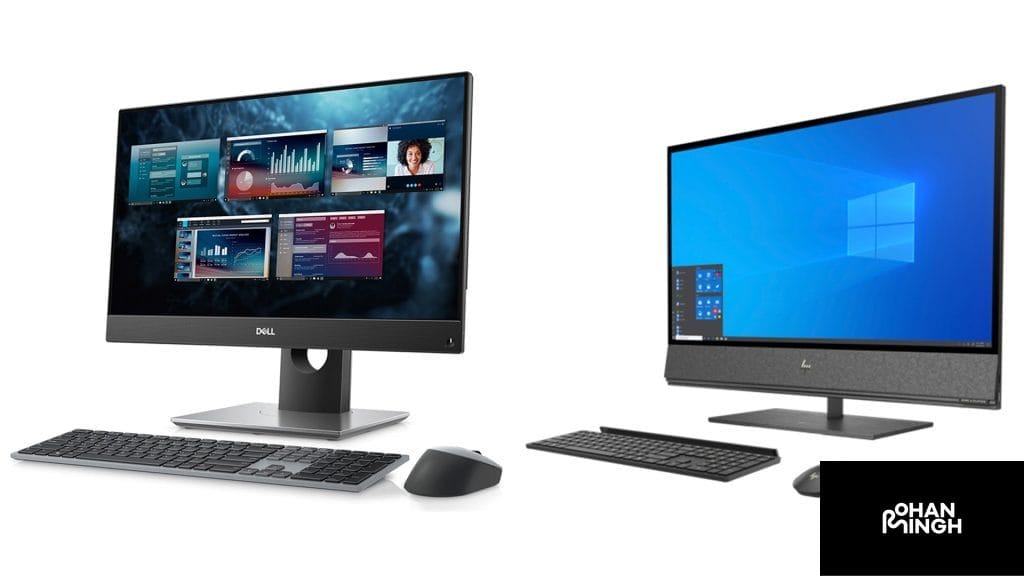
Final Thoughts
In conclusion, both HP and Dell have implemented successful marketing strategies that have allowed them to thrive in the highly competitive technology industry. HP’s focus on innovation and customer experience has positioned them as a leader in the market, catering to a wide range of customers with its diverse product offerings. Their emphasis on customizable and reliable products has resonated with business users and creative professionals alike. HP’s commitment to excellent customer service and support has further strengthened its relationships with customers, driving loyalty and repeat business.
On the other hand, Dell’s direct sales model has been a key factor in their success. By selling directly to customers, they have been able to better understand and meet their needs, while also keeping costs low. Dell’s continuous-growth model and strategic acquisitions have enabled them to adapt to changing market demands and expand their product lines, particularly in areas like data storage. Their investment in R&D and focus on cutting-edge solutions have allowed them to stay at the forefront of technology advancements.
Ultimately, both HP and Dell have demonstrated their ability to stay relevant in the 21st century by continually innovating, delivering exceptional customer experiences, and providing a wide range of options for customers. As technology leaders, they will undoubtedly continue to explore new marketing strategies and leverage the power of digital marketing to maintain their competitive edge in the industry.
FAQs
What is HP's marketing strategy?
HP’s marketing strategy focuses on innovation and customer experience. They aim to cater to a wide range of customers with diverse product offerings. By emphasizing customization and reliability, HP has successfully captured the attention of business users and creative professionals. Additionally, HP places great importance on excellent customer service and support, building strong relationships with their customers, and fostering loyalty.
What is Dell's marketing strategy?
Dell’s marketing strategy revolves around its direct sales model. This approach allows Dell to have a better understanding of customer needs while keeping costs low. Dell’s continuous-growth model and strategic acquisitions have been instrumental in adapting to market demands and expanding its product lines. With a strong focus on R&D and cutting-edge solutions, Dell stays ahead in technology advancements.
How do HP and Dell target customers?
HP targets a wide range of customers, including business users and creative professionals, with their customizable and reliable products. They understand the unique needs of these segments and create tailored marketing campaigns to capture their attention. On the other hand, Dell’s direct sales model enables them to directly engage with potential customers, providing a personalized experience and building lasting relationships.
What is the unique selling proposition of HP and Dell?
HP’s unique selling proposition lies in its commitment to innovation, customer experience, and excellent customer service. They offer a wide range of options to meet varying customer demands and provide reliable products backed by exceptional support. On the other hand, Dell’s unique selling proposition lies in its direct sales model, which enables them to offer customizable products at competitive prices, meeting the specific needs and preferences of its customers.
How do HP and Dell determine their pricing strategy?
Both HP and Dell consider various factors when determining their pricing strategies. These include market competition, cost structures, customer demand, and the value proposition of their products. HP aims to provide value for money with its innovative and customizable products, while Dell focuses on offering competitive prices through their direct sales model.
FAQ 3
Lorem ipsum dolor sit amet, consectetur adipiscing elit. Ut elit tellus, luctus nec ullamcorper mattis, pulvinar dapibus leo.
How do HP and Dell utilize digital marketing in their strategies?
HP and Dell both invest in digital marketing to reach their target audience effectively. They utilize various digital channels such as social media, search engine optimization (SEO), content marketing, and online advertising. These platforms enable them to showcase their product offerings, engage with customers, and build brand awareness. Both companies understand the importance of utilizing digital marketing tools to stay connected and meet the ever-evolving needs of today’s tech-savvy consumers.
How does Dell make money: Business Model?
Dell’s business model is highly unique and revolves around its famous direct sales approach. This model allows Dell to bypass intermediaries and sell directly to its customers, resulting in a more personalized and efficient buying process. By eliminating the need for middlemen, Dell can have a better understanding of customer needs and preferences, while also keeping costs low. This direct sales model has been a key contributor to Dell’s success in the technology industry.
In addition to their direct sales approach, customization is another crucial component of Dell’s business model. Dell allows customers to tailor their products to their specific needs and preferences, whether it’s a desktop computer or a laptop. By offering this level of customization and personalization, Dell can cater to a wide range of customers and provide them with the exact products they desire.
Cost efficiency is also a significant part of Dell’s business model. By eliminating unnecessary layers in the supply chain and streamlining its operations, Dell can keep costs low while still delivering high-quality products. This enables Dell to generate healthy profit margins, even in a highly competitive market.
Diversification is another important aspect of Dell’s business model. Over the years, Dell has expanded its product offerings beyond personal computers. They now provide a wide range of technology-related products such as storage devices, servers, and networking equipment. This diversification allows Dell to tap into multiple markets and revenue streams, further enhancing their ability to make money.
Overall, Dell’s business model is built on the pillars of direct sales, customization, cost efficiency, and diversification. By capitalizing on these key components, Dell has been able to sustain its success in the technology industry and deliver value to its customers. As Michael Dell, the founder of Dell Inc., once stated, “Technology now has the opportunity to deliver a newer, better way of doing business in the 21st century.” And Dell’s business model is a testament to that belief.
What marketing strategy does HP use?
HP’s marketing strategy revolves around its brand mission of delivering the highest quality and value to its customers. With a focus on both devices and services, HP aims to cater to the needs of a wide range of customers in the technology industry.
One significant aspect of HP’s marketing strategy is its approach to PCs and servers, which differs from Dell’s in two important ways. Firstly, HP utilizes a multibusiness model, offering a variety of product lines such as desktop computers, laptop computers, and storage devices. This range of options allows HP to target different customer segments and provide them with products that suit their specific needs. Secondly, HP employs a mix of sales channels, including direct sales and partnerships with retailers, to ensure that their products are accessible to customers wherever they prefer to shop.
In terms of product design, HP focuses on creating cutting-edge and reliable products that meet the demands of both business users and creative professionals. Their servers, for example, are designed to provide excellent performance and support a wide range of technologies. This commitment to innovation and flexibility helps HP stand out in the market.
HP’s brand purpose is reflective of the Creator brand archetype, emphasizing the power of imagination, and innovation, and enabling individuals to bring their ideas to life. This is evident in their branding and messaging tactics, which emphasize the potential for creativity and productivity that their products offer.
Through its marketing strategy, HP implements the messaging levels of the Creator brand archetype by showcasing how its products empower customers to express their creativity and achieve their goals. This is done through compelling storytelling, highlighting real-life examples of individuals and businesses using HP products to drive innovation and realize their vision.
Overall, HP’s marketing strategy combines a diverse product portfolio, a strong focus on product design, and a messaging approach that resonates with the Creator brand archetype. This enables HP to effectively reach and engage its target customers, building brand loyalty and driving business growth.
What marketing strategy does Dell use?
Dell’s marketing strategy centers around its distinctive approach to the personal computer industry. One of the key elements of Dell’s strategy is its direct sales model, which enables customers to customize their computers according to their specific needs. This model allows Dell to have a direct relationship with its customers, eliminating the need for intermediaries and reducing costs. By selling directly to customers, Dell gains a competitive advantage by offering customizable products at a lower cost than its competitors.
Another crucial aspect of Dell’s marketing strategy is its emphasis on customer service. Dell recognizes the importance of excellent customer support services in building strong relationships with customers. The company aims to provide outstanding product support and assistance, ensuring a positive customer experience throughout the purchase process and beyond. This focus on customer service helps Dell differentiate itself from other players in the market and build loyalty among its customer base.
To enhance brand awareness, Dell employs various marketing tools and tactics. The company invests in digital marketing campaigns to reach potential customers through online channels, such as social media platforms and search engine optimization. Dell also utilizes traditional marketing methods, such as print advertisements and sponsorships, to increase visibility and engage with a wider audience.
In the contemporary business environment, Dell faces both challenges and opportunities. On one hand, the increasing competition in the technology industry requires Dell to continuously innovate and differentiate itself to maintain its market leadership position. On the other hand, the growing demand for technology-related products provides Dell with the potential for continued growth. By leveraging its direct sales model, customization options, and strong customer service focus, Dell is well-positioned to navigate the ever-changing market landscape and drive further success.
How does Dell promote their products?
Dell’s marketing strategy is carefully crafted to promote its products effectively and reach its target customers. One of the key elements of Dell’s promotional strategy is its emphasis on digital marketing. By investing in online channels such as social media platforms and search engine optimization, Dell can reach potential customers and create brand awareness in the digital space. This allows Dell to engage with a wider audience and showcase their range of options to meet customer demand.
In addition to digital marketing, Dell also relies on its direct sales model to promote its products. This approach allows Dell to build stronger relationships with customers by providing personalized support and assistance throughout the purchasing process. By cutting out middlemen and establishing direct relationships with customers, Dell can better understand their needs and preferences, ultimately offering customized products and services. This allows Dell to stay ahead of the competition by providing cutting-edge products that are tailored to the specific requirements of different customer segments.
Furthermore, Dell leverages strategic partnerships, event sponsorships, and product launches to further promote its offerings. Collaborations with technology leaders and other industry players allow Dell to tap into new markets and expand its customer base. By participating in events and sponsorships, Dell can showcase its innovative solutions and build brand credibility among potential customers. Overall, Dell’s promotional strategies combine digital marketing, direct sales, and strategic partnerships to effectively promote its wide range of reliable and customizable products in the competitive technology industry.
Can Dell's Turnaround Strategy Keep HP at Bay?
Dell has been facing stiff competition from rival HP, and to stay relevant in the market, it has had to implement a turnaround strategy that can keep HP at bay. One of the key measures Dell has taken is to focus on product design and innovation. By creating cutting-edge and reliable products, Dell aims to differentiate itself from the competition and attract the attention of potential customers. This approach allows Dell to position itself as a technology leader in the industry, which is crucial in today’s fast-paced market.
Furthermore, Dell has also formed strategic partnerships with retailers to expand its reach and improve its distribution channels. By collaborating with well-known retailers, Dell can tap into their customer base and gain exposure to a wider audience. This not only helps Dell increase its market share but also improves its brand reputation.
The effectiveness of Dell’s turnaround strategy hinges on several factors. Firstly, Dell needs to reach new customers and capture their attention with its innovative product offerings. This can be achieved through targeted marketing campaigns that emphasize the benefits and advantages of choosing Dell over its competitors. Additionally, Dell must stay up-to-date with consumer trends and adapt its product lines accordingly. This means constantly monitoring the market and identifying new opportunities to meet customer demand.
In conclusion, Dell’s turnaround strategy, which focuses on product design, innovation, and partnerships with retailers, has the potential to keep HP at bay. However, Dell must effectively reach new customers, capitalize on consumer trends, and continuously innovate to stay ahead in the competitive technology industry.
Why the Dell PC strategy has paid off?
Dell’s PC strategy has undeniably paid off, propelling the company to become one of the leading players in the technology industry. A key factor behind Dell’s success lies in its unique business model, which is centered around the direct sales model. By cutting out the middlemen and selling directly to customers, Dell can offer competitive prices and maintain tighter control over its operations. This approach allows Dell to provide excellent customer service and support, as well as offer a wide range of customizable products to meet the diverse needs of its customers.
One of the major reasons why Dell’s PC strategy has paid off is its commitment to delivering high-quality, more powerful, faster, customized, and cheaper computers. These initiatives have consistently been at the forefront of Dell’s marketing efforts, enabling the company to capitalize on the evolving demands of the market. By investing heavily in research and development, Dell has been able to stay ahead of the curve and design cutting-edge products that meet the expectations of both business users and creative professionals.
To fully understand the success of Dell’s PC strategy, we must delve into the company’s history and the visionary dream of its founder, Michael Dell. From the very beginning, Dell’s goal was to create affordable, customizable computers for consumers, an idea that revolutionized the personal computer industry. Under Michael Dell’s leadership, the company underwent a major restructuring that shifted its focus towards higher-end products and services. This strategic move allowed Dell to differentiate itself from competitors and establish a reputation for delivering reliable and innovative technology-related products.
In conclusion, Dell’s PC strategy has paid off because of its unique business model, adherence to the “High Quality, More Powerful, Faster, Customized, and Cheaper” initiatives, Michael Dell’s leadership, and the company’s investments in higher-end products and research and development. By consistently delivering on its promises and adapting to market trends, Dell has gained a competitive edge and continues to thrive in the ever-evolving technology landscape.
Dell vs. HP: Which is Better?
When it comes to comparing Dell and HP laptops, there are some key differences to consider. In terms of performance, Dell has consistently been known for delivering high-quality, powerful machines. With its focus on research and development, Dell has been able to design laptops that offer excellent performance for demanding tasks such as graphic design, video editing, and gaming. On the other hand, HP laptops are often praised for their sleek and stylish design. While they may not always match Dell in terms of raw performance, HP laptops excel in providing a balance between performance and aesthetics.
Customer service is another important aspect to consider. Dell has built a strong reputation for its excellent customer support services. With its direct sales model, Dell can offer personalized customer support and troubleshooting assistance, ensuring that customers are satisfied with their purchases. On the other hand, HP has a wide range of options for customers to choose from and provides solid customer service, but some users have reported mixed experiences.
For those in need of high-performance specifications, Dell offers top models such as the Dell XPS 15 and the Dell Precision series, which are recommended for creative professionals. HP also has its fair share of high-performance laptops, such as the HP Spectre x360 and the HP ZBook series. These models offer the power and capability needed for demanding tasks, making them ideal for professionals in fields such as graphic design, architecture, and engineering.
When considering cost and performance, it’s important to weigh your options. Dell laptops often come with a higher price tag due to their cutting-edge technology and customization options. On the other hand, HP laptops may offer more affordable options without compromising too much on performance. It’s always a good idea to seek expert recommendations and consider your specific needs before making a purchase.
What Marketing Strategy Did Cheetos Employ for Plants vs. Zombies Collaboration?
Rohan Singh | May 1, 2024 | Acquisition What Marketing Strategy Did Cheetos Employ for Plants vs. Zombies Collaboration? Background on Cheetos Cheetos, a popular brand of cheese-flavored snacks, has made a name for itself with its bold and playful marketing strategies. Known for its irreverent and creative campaigns, Cheetos has consistently found unique ways […]
What Marketing Strategy Did Cheetos Employ for Plants vs. Zombies Collaboration?
Rohan Singh | May 1, 2024 | Acquisition What Marketing Strategy Did Cheetos Employ for Plants vs. Zombies Collaboration? Background on Cheetos Cheetos, a popular brand of cheese-flavored snacks, has made a name for itself with its bold and playful marketing strategies. Known for its irreverent and creative campaigns, Cheetos has consistently found unique ways […]
What Differentiates Differentiated Marketing Strategy from Undifferentiated?
Rohan Singh | April 30, 2024 | Acquisition What Differentiates Differentiated Marketing Strategy from Undifferentiated? Definition of Differentiated Marketing Strategy A differentiated marketing strategy is a targeted approach that focuses on creating unique products or services to meet the specific needs and preferences of different customer segments. It recognizes that customers have diverse tastes, preferences, […]
What Sets Apart the Marketing Concept from a Marketing Strategy?
Rohan Singh | April 29, 2024 | Acquisition What Sets Apart the Marketing Concept from a Marketing Strategy? Definition of Marketing Concept The marketing concept is a philosophy that places the customer at the center of all marketing activities. It focuses on understanding the needs and wants of the target market and delivering value to […]
Which promotional mix strategy targets market channel members?
Rohan Singh | April 28, 2024 | Acquisition Which promotional mix strategy targets market channel members? When it comes to promoting a product or service, companies utilize various strategies to reach their target audiences. One key strategy that directs marketing efforts toward market channel members is known as trade promotion. Trade promotion is a type […]
Should charter schools adopt regional or national marketing strategies?
Rohan Singh | April 27, 2024 | Acquisition Should charter schools adopt regional or national marketing strategies? Purpose When it comes to marketing strategy in the field of charter schools, two broad approaches can be taken: regional and national. Each approach has its purpose and benefits depending on the goals and aspirations of the charter […]
Similar articles about Acquisition Strategy:
Ready to Plan Your Dream Trip with ChatGPT Vacation Planner?, Want to Experience the Magic of Third-Party ChatGPT Plugins?
How can Efficient Project Management Boost Your Success?, Looking to Boost Your YouTube Views? Use ChatGPT for Top-Notch Video Optimization!, Are You Leveraging SEO Audits to Win More Clients?, Ever Thought of Starting an AI Career? Discover How Today!, Can SEO Propel Your Store to 1 Million Monthly Visitors?, How Can Google Bard Supercharge Your SEO Content Strategy?
Which is the Best AI Chatbot? A Head-to-Head Comparison of ChatGPT, Claude 2, Bing Chat, and Google Bard, Eager to Multiply Local Business Reviews from Travelers?, Want a Game-Changer in SEO? Have You Tried AI and Chrome Extensions Yet?, Can AI-Powered Growth Spark Your Business Acceleration and Digital Transformation?, Ready to Achieve SEO Mastery and Stand Out in the Digital World?
Ready to Dominate the Future? How Can You Kickstart Your AI Data Science Career Today?, Want to Dominate Google SERP? Learn How to Supercharge Your Content Strategy!, Have You Explored the ChatGPT Android App Yet?, Ready to Supercharge Your Business? Harness the Power of Always-On PPC Strategy Now!
Are You Choosing the Right Digital Agency for Your Business? Discover the 5 Key Considerations!, How Can AI Marketing Tools Transform Your Social Media Career?, How Can You Dominate YouTube Rankings with SEO in 2023?
Struggling with Competitive Organic Keywords? Try Our Advanced Keyword Domination Strategy!, Want to Dominate Google Page Ranking? Discover the Secrets Here!, Can You Transform Unexpected Publicity into Opportunity with PPC?
Want to Create High-Converting Emails Fast? Have You Tried AI Copywriting & ChatGPT?, How Can You Thrive in the AI Era? A Guide to AI Survival, Want to Dominate Google’s First Page? Discover the Essential SEO Ranking Factors, How to Implement Generative AI Tools Safely and Ethically? Navigating the Ethical AI Implementation Quandary
Ready to Scale Your Career? How to Learn Growth Marketing in 6 Transformative Steps, Ready to Launch Your Career? How to Land Your First Digital Marketing Job: A Must-Read Guide for Freshers!, Want to Safeguard Your Paid Search Campaigns? Discover Proven Strategies Here!
Looking to Boost Your WordPress SEO with AI? Here are 12 Tools You Can’t Miss!, Want to Boost Your Google Rankings? Master SEO Strategies to Hit #1 Now!, How Can AI SEO Revolutionize Your Online Strategy?, Are Your High Schoolers Ready for the AI Wave?, How Can You Achieve Perfect SEO Harmonization?, Ready to Ignite Niche Buzz? Learn How to Fuel Demand!, Ready to Supercharge Your Digital Marketing Agency’s Growth?,
Can ChatGPT Elevate Your PPC Strategy?
Ready to Dominate Digital Marketing in 2024 Using AI?, Want the Secret to #1 Rankings with SEO Web Design?, Ready to Break Language Barriers with Google Bard?, Ready to Boost Your Cleaning Business via Google Ads with Mcelligot?
How Can You Master Google Analytics 4 Quickly?, How Can SEO Mastery Elevate Your Brand’s Future?, Want to Boost Your SEO in 2023? How Can Guest Posting Help?, Want to Top Google’s Charts? How Can the ChatGPT SEO Hack Propel You?
Want the Best Visibility for Your Videos? How Does Video SEO Upload Make a Difference?, How Can You Improve Your Video’s Rank with YouTube SEO Tips?, How Can SEO be Your Ultimate Tool for Generating Leads Forever?, How Can SEO Boost Elevate Your Ranking and Conversion Rates?
How Can Digital Marketing Supercharge College Enrollment?, How Can SEO Mastery Ensure Endless Lead Generation?, How Can You Craft an AI-Ready Resume for Modern Recruitment?, How Does Venmo’s Marketing Strategy Drive Success?
How Can an Effective CEO Branding Strategy Elevate Your Business?, What Makes Doritos’ Marketing Strategy a Winning Formula?, How Does IKEA’s Marketing Strategy Revolutionize Home Furnishing?
What Sets Apart Samsung’s Advertising Strategy for Success?, How Does Nintendo’s Marketing Strategy Revolutionize Gaming?, How Does Bank of America’s Marketing Strategy Drive Success?
How Does Nestle’s Marketing Strategy Drive Business Growth?, What differentiates Nike and Adidas marketing strategies?, What differentiates a Go-to-Market Strategy from a Marketing Strategy?, What are the marketing strategies of Amazon and Flipkart?
What distinguishes a pull strategy from a push strategy in marketing?, What are the marketing strategies of Pepsi and Coke?
What distinguishes a Chief Strategy Officer from a Chief Marketing Officer?, What sets apart a marketing strategy from a sales strategy?
What are the marketing strategies of Colgate and Pepsodent?, What differentiates marketing research from marketing strategy?, Examples of marketing strategy and tactics, What is an effective marketing strategy for car dealers?
How does Nike’s marketing strategy drive its success?, How does Nike execute its international marketing strategy?, What’s the secret behind an effective hot sauce marketing strategy?, What drives Amazon’s powerful marketing strategy?
How can an innovative marketing strategy drive business growth?, What is Nissan’s effective advertising strategy?, What are the differences between one-to-many and one-to-one marketing strategies?, What sets apart big business and small business marketing strategies?
What differentiates Amazon’s marketing from its business strategy?, How can small businesses choose between global marketing standardization and adaptation?, Which platform offers the best marketing strategy: YouTube, Facebook, or Instagram?, How does Nike’s marketing strategy compare to Reebok’s?
Which marketing strategy is better: Deluxe or Premium?, What marketing strategy suits tangible vs intangible dominant products?, Guerilla marketing vs bootstrap marketing: Which is more effective?, Which is better: Niche marketing or concentrated marketing?
What are the differences between undifferentiated, differentiated, and concentrated marketing strategies?, What was the marketing strategy for Mayweather vs. McGregor?, What distinguishes the marketing strategies of Suzuki and Honda motorcycles?, Which is more effective: Regional or national marketing strategy?
What differentiates global marketing strategy from a multidomestic strategy?, Which marketing strategy is ideal for tangible vs. intangible dominant products?, How does Pepsi’s marketing strategy compare to Coca-Cola’s?, When is it appropriate to use differentiated marketing versus a mass market strategy?, What sets apart the marketing strategy for services from products?, How do HP and Dell differ in their marketing strategies?
How do PlayStation and Nintendo differ in their marketing strategies?, How do Timex and Rolex differ in their marketing strategies?, What is the purpose and focus of a social marketing strategy?, How does Facebook’s marketing strategy compare to Google’s?, When to choose concentrated marketing strategy over differentiated marketing?, How does Lowe’s marketing strategy compare to Home Depot’s?
Is it better to use multiple brand names or one brand name in your marketing strategy?, Which is more effective: marketing strategy with coupons or email campaigns?, What sets Verizon, T-Mobile, and AT&T apart in their commercial marketing strategies?,What Sets Apart Global Marketing Strategy from US Marketing Strategy?
Multinational vs. Transnational Marketing Strategy: What’s the Difference?, What’s the Distinction: Advertising vs. Marketing Strategy? Uncover the Differences., What Are the Advantages of Centralized and Decentralized Marketing Strategies?
What’s the Difference Between Guerrilla and Bootstrap Marketing Strategies?, How Do Pepsi and McDonald’s Differ in Marketing Strategies?, What Differentiates a Marketing Strategy from Tactics Deck?, What Sets Apart Suzuki and Honda Marketing Strategies?, How Does a Vision Statement Differ from a Marketing Strategy?,What’s the Difference Between Concentrated and Undifferentiated Marketing Strategies?
How Do Microsoft and Apple Differ in Marketing Strategies?,What Sets Apart the Marketing Strategies of Xbox One and PS4?,What Sets Apart Li Ning and Adidas Marketing Strategies?, How Do Pepsi and Coke Differ in Marketing Strategies?, How Do Distribution Strategy and Marketing Strategy Intersect?, What Sets Apart Global and Domestic Marketing Strategies?, What Makes an Effective Marketing Strategy for Consulting Services vs Operations?, What’s the Difference Between a Digital Marketing Plan and Digital Strategy?
How Does Marketing Strategy Impact Channel Selection? ,How Do Boeing and Airbus Differ in Their Marketing Strategies?, What is the Difference Between Corporate and Marketing Strategy?,What can we learn from Walmart’s global vs marketing strategy case study?, What distinguishes General Motors’ marketing strategy from Ford’s?, What are the differences in marketing strategies between McDonald’s and Burger King?, What is the difference between marketing and commercial strategy?, What distinguishes Home Depot and Lowe’s marketing strategies?,
How does marketing strategy differ for small businesses vs. big businesses?,What sets IKEA’s marketing strategy apart from competitors?, What are the marketing strategies of Nestle and Cadbury? ,What Sets Apart Puma and Adidas Marketing Strategies?, What’s the Distinction Between Operational and Marketing Strategy?,
What Differentiates Marketing Strategy Text and Cases International Edition from US?, What Differentiates Marketing and Operational Strategies for Nonprofit Startups?,
What are the differences between Intel and AMD’s marketing strategies?, What Sets Apart Nokia and Samsung Marketing Strategies?, What’s the Difference Between Marketing Plan and Strategy for Therapists?, What Sets Apart Wendy’s, McDonald’s, and Burger King Marketing Strategies?
What’s the Difference Between Single Country Marketing and Global Marketing Strategy?, What Sets Apart Marketing Strategy from Sales Strategy?, What Differentiates Pizza Hut and Domino’s Marketing Strategies?, What’s the Distinction Between Channel Strategy and Marketing Strategy?, What Are the Essential Steps in Developing a Marketing Strategy?
What Makes Coca-Cola’s Marketing Strategy Successful?, What Sets Apart Mattel’s Marketing Strategy for Success?, What Is the Key to Goodwill Marketing Strategy?, What’s the Ideal Marketing Strategy for Senior Living Communities?, How Do You Formulate an Effective Marketing Strategy?, What Are the Four Steps to Designing a Customer-Driven Marketing Strategy?, What Makes UFC’s Marketing Strategy a Knockout Success?, How to Develop an Effective Marketing Strategy for a Consulting Firm?
What’s the Winning Marketing Strategy for Car Dealerships?, What Are the Four Steps to Designing a Customer-Driven Marketing Strategy?, What Differentiates Marketing Strategy from Corporate Strategy?, How Do Marketing Planning and Strategy Differ in Demographics vs Psychographics?, What distinguishes a Content Strategy from a Content Marketing Strategy?, Blue Ocean Strategy vs. 22 Immutable Laws of Marketing: Which Approach Drives Business Success?, Are digital marketing strategies superior to traditional ones?, What are the differences between inbound and outbound marketing strategies?, What Sets Apart Digital Marketing Strategy from Social Media Strategy?
What Sets Apart Marketing Strategy and Marketing Campaign?, How Did Uber Implement Their Growth Strategy?, What’s the difference between a digital marketing strategy and a social media strategist?, What Sets Apart Two-Sided and One-Sided Fast Food Marketing Strategies?, What’s the Distinction Between Marketing Product Manager and Marketing Strategy Manager?,
How Did Airbnb Execute Their Growth Strategy?, What differentiates a marketing strategy from a tactic?, What makes an effective museum marketing strategy?, What are the differences between traditional and digital marketing strategies?, How Do Advertising Objectives Align with Marketing Strategy Planning?, What Sets Apart Marketing and Operational Strategies for Startups?, What Differentiates Web Strategy from Digital Marketing Strategy?, What’s the Difference Between Project Management and Marketing Strategy?, How do Absolut and Smirnoff vodka differ in their marketing strategies?, How does marketing strategy differ for services versus operations?
Which Dominates: Amazon vs. eBay Marketing Strategy? Unveiling the Differences., How does a global marketing strategy balance adaptation and standardization decisions?, What Differentiates a Marketing Plan, Strategy, and Campaign?, What Are Canon and Nikon’s Marketing Strategies?, How does a content strategy differ from a marketing plan?, What sets marketing apart from strategy?,What sets apart a total web strategy from a web marketing strategy?, How do business strategy and marketing align for success?
What Are the Steps to Develop a Customer-Driven Marketing Strategy?, How Do B2C and B2B Marketing Strategies Differ?, What Sets Apart Marketing Strategy from Marketing Mix?, What’s the Difference Between Business and Marketing Strategy?, How does a Content Strategy differ from a Marketing Strategy?,
How Does the Good vs Evil Dynamic Impact Sex Sells Marketing Strategy?, How Does a Marketing Plan Differ from a Competitive Strategy?, Which marketing strategy works best for videos: Facebook or YouTube?, How Did Tata Communications Implement an Effective Emerging Markets Growth Strategy?,
How do Samsung and Sony differ in their 3D TV marketing strategies?, What Differentiates International and Domestic Marketing Strategies?, What’s the Distinction Between Commercial Strategy and Marketing Strategy?, How do Apple and Samsung’s marketing strategies compare?, What is the difference between marketing methods and marketing strategy?, What was the marketing strategy behind Sarabhai vs Sarabhai’s success?
Which Marketing Strategy Dominates: Tangible or Intangible?, What Sets Apart Blue Ocean and Red Ocean Marketing Strategies?, What are the differences in Walmart’s marketing strategy between the US and Mexico?, How do marketing plan, strategy, and management work together for business success?
Can you provide a marketing strategy vs marketing plan example?, What Differentiates Brand Building from Product Marketing Strategy?, What is the importance of an advertising strategy statement?, What Sets Apart Cisco’s B2B Marketing Strategy from Dell?, What are the differences in Intel and AMD’s marketing strategies?, What’s the Difference Between Marketing Plan, Strategy, and Management?
What’s the Difference Between Digital Marketing and Digital Strategy?, What’s the Difference Between Offensive and Defensive Marketing Strategies?, What’s the Marketing Strategy for Tangible vs. Intangible Dominant Products?, Which is Better for Your Business: Marketing Strategy vs. ClickBank vs. Quant?, Should I focus on marketing regionally or nationally? Expert insights revealed., Should a global marketing strategy prioritize adaptation or standardization?, What Sets Apart Marketing Strategies for Commodity Products vs. Luxury?, What Sets Apart Integrated Marketing Communications (IMC) from Traditional Promotion Mix Strategies?
Should charter schools adopt regional or national marketing strategies?, Which promotional mix strategy targets market channel members?, What Sets Apart the Marketing Concept from a Marketing Strategy?, What Differentiates Differentiated Marketing Strategy from Undifferentiated?, What Marketing Strategy Did Cheetos Employ for Plants vs. Zombies Collaboration?
Share :


